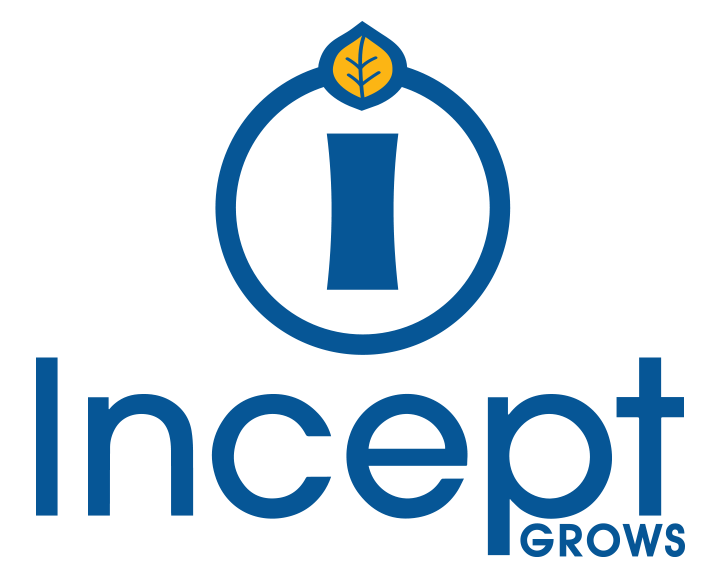"You don't have experience working with our industry."
B2B sales can be frustrating because most people tend to operate in a mindset that their industry is the exception to the norm.
It may not matter that we have helped software companies reach high-level decision-makers at their target companies; if we haven't helped financial software companies reach high-level decision-makers at their target companies, suddenly we have no experience (sarcasm).
B2B sales can be frustrating, because most people tend to operate in a mindset that their industry is the exception to the norm.
It may not matter that we have helped software companies reach high-level decision-makers at their target companies; if we haven't helped financial software companies reach high-level decision-makers at their target companies, suddenly we have no experience.
I run into this all the time. People asking if we work with anyone in their niche, specific industry, and thinking that unless we work with one of their direct competitors, we don't know what we're talking about.
Unfortunately, this thinking is all turned around. The question is not, "What industries can you work with?" The question needs to be, "What experience do you have reaching[this level decision maker], or [handling this portion of our sales cycle]?"
Just the other day, I was talking to a gentleman from the energy industry and he asked if we had any other clients from the industry. The answer was, at first, yes we do. But they're almost entirely irrelevant because our current energy customers are B2C customers, and the gentleman I was talking to had a B2B sales need. So my question back to him was, "Who do we need to talk to? Facilities Managers at manufacturing plants? Oh, well in that case, we have a team of skilled reps who are experts at overcoming gatekeepers to reach mid-level decision makers."
Seeing it in this light, he decided to work with us, and we've proven day after day that we can, in fact, overcome gatekeepers to reach mid-level decision makers.
As you're rebuilding your website or considering how to pad your client portfolio, don't panic if you only have a few industries represented. Show your true colors, and show off the skills you've developed in working with your current clients. Translating those skills into actionable results for your prospects will lead to more closed deals and increased business growth.
Inbound Sales Day 2016
As a practice, sales has changed. Today's buyer is more sophisticated than ever before. They are Googling problems, researching solutions, downloading best practices, and becoming more informed before ever talking to a sales representative.
So how should your inside sales team adjust to these changes?
As a practice, sales has changed. Today's buyer is more sophisticated than ever before. They are Googling problems, researching solutions, downloading best practices, and becoming more informed before ever talking to a sales representative.
So how should your inside sales team adjust to these changes? Step one is to commit to learning. As processes change at a faster pace, committing to learning and improving will take you farther than ever before.
That's why we're attending #InboundSalesDay
On September 14th, 2016, Hubspot is hosting a FREE event committed to helping you learn how to sell more. They'll have 5 live Q&A sessions, 12 executive talks, and 4 on-demand interviews all making up 10 hours of sales insights.
You better believe we'll be attending this event and we invite you to join us too! Click 'Save My Seat' to register:
Why I love working with startups
I recently sat down with a gentleman named Ed who recently started a hearing-aid business. He has investors, suppliers, and is ready to take his product to market and begin establishing some test data and case studies. He was referred to me through a mutual friend who said, "You need to talk to these guys - they're the experts at helping small businesses grow!"
I recently sat down with a gentleman named Ed who recently started a hearing-aid business. He has investors, suppliers, and is ready to take his product to market and begin establishing some test data and case studies. He was referred to me through a mutual friend who said, "You need to talk to these guys - they're the experts at helping small businesses grow!"
When Ed and I sat down, he cast for me the vision of what he was hoping to do with his business. He's passionate and is confident that the viability and market-demand of his product means huge success for him and his company. He was also completely confident that he didn't know everything he needed to know about growing his business.
I wrote an article a few weeks ago around coachability. This character trait is, for the most part, a given with entrepreneurs and small business owners. They're smart folks, with a lot of passion, and their driven to achieve success. But they're also willing to take risks, fail fast, and learn from other, smarter people around them.
This is why I love working with startups. When people like Ed come in and say, "This is where I want to be in a year. How can I get there?" I know that we can help them achieve monumental success.
On the other hand, when a new client comes on board saying, "This is exactly what I want you to do. I'm doing it now, and it works," it becomes extremely difficult to make recommendations and develop a partnership that sets both of us up for longterm success.
Whether you're a startup, a small business looking to grow, or an established, growing organization looking to supplement your ongoing business development strategies, it's important to take a step back from what you think you already know and listen to the people around you. Be bold, try new things, take risks and make big bets, and when it fails, be ready to up your ante, jump back in the saddle and keep going (tons of metaphors in there - pick your favorite).
Now Hiring: Sales Prima Donnas
Let's be honest - sales people can be a pain. I'm the first to admit that I'm probably not always the most fun to manage. I've recently gotten experience managing other "me's," and it's given me a bit of perspective, not only on the headaches I've undoubtedly caused my boss, but on the level of stress that must come with anyone looking to hire, train, and manage a sales team.
Let's be honest - sales people can be a pain. I'm the first to admit that I'm probably not always the most fun to manage. I've recently gotten experience managing other "me's," and it's given me a bit of perspective, not only on the headaches I've undoubtedly caused my boss, but on the level of stress that must come with anyone looking to hire, train, and manage a sales team.
Nobody ever sets out to hire a high-maintenance sales diva, but that's essentially what many of the all-stars out there are. We're passionate, money-motivated, ambitious, driven, and aggressive, which means we're not afraid to speak our minds, ask questions that most people wouldn't, and call out injustice when we see it (ie. "How come Jim gets the nice cubicle?", "When do I qualify for a company car?")
If you're looking to grow your business, the last thing you need to add to your plate is managing a prima donna. The problem I run into the most, though, is that folks equate growing their business to adding the next all-star (aka diva) to their sales force, but those simply aren't the same thing. What growing your business actually means finding ways to fill the top of your sales funnel while spending your time on the most value-added activities, like nursing prospects through the latter segments of the pipeline and through the onboarding process - not, hiring, training, and dealing with a sales prima donna.
There are numerous ways to fill the top of the funnel without hiring a full-time headache. So before you post your job on Indeed, get outside the box and look into some alternative options like automated inbound marketing or outsourced inside sales. Find the right partner now, redeem your time, grow your business.
An epidemic of missed revenue...
I have written a lot recently about cold-calling and new customer acquisition. One area of potential revenue that continually gets sold short or overlooked, however, is that of lapsed customers. These come from a few different places...
I have written a lot recently about cold-calling and new customer acquisition. One area of potential revenue that continually gets sold short or overlooked, however, is that of lapsed customers. These come from a few different places:
1. They bought from you once, for one thing they needed at the time, and aren't aware that you have other things they could benefit from too. A good example of this is a small local publication we work with who primarily sell ad-space in their paper. The company, however, is a full-service marketing firm with the ability to help their customers grow their business using digital marketing alongside their print ads. They've recently seen a spike in new business by turning these customers on to the other things they have to offer.
2. Customers get lost due to sales force turnover. If you use a CRM, you likely have certain customers assigned to specific sales reps, whether in a round-robin fashion, or on a first-come, first served basis. I just talked to a gentleman yesterday who, after being on the sales floor at a Lexus dealership for two weeks, pulled a similar report from the CRM, and as a result, achieved his sales quota in his first month and every month thereafter. Had he not done that, there likely would have been thousands of dollars in missed revenue for the dealership.
3. They just forgot, and need invited back. You would be surprised about how many times we're talking to our clients' customers and we hear, "Oh yeah, I completely forgot about you guys. Of course I'd like to place another order." With such a distraction-heavy world, you can't afford to be out of sight, and out of mind, because it's leading to more missed revenue.
All of these potential customers are relationships you already have, or had at one point. You don't have to go find them. They don't need marketed to, or gimmicked. They're already in your CRM, or database, and just need re-engaged. Do your customers know all the services and solutions you provide When was the last time you pulled a report of leads, prospects, and customers who are assigned to sales reps that are no longer with your company? Are you continually engaging one-off customers and staying top of mind?






